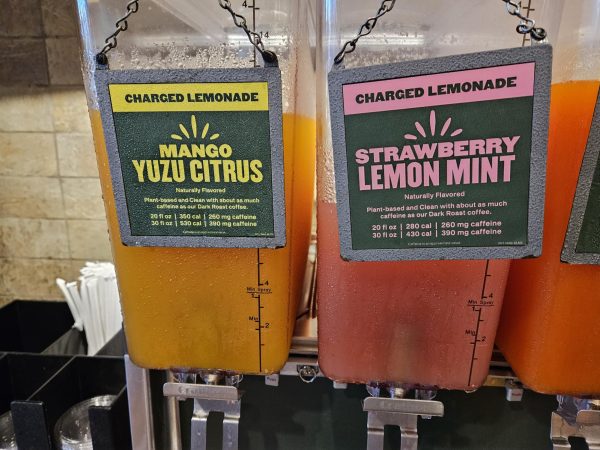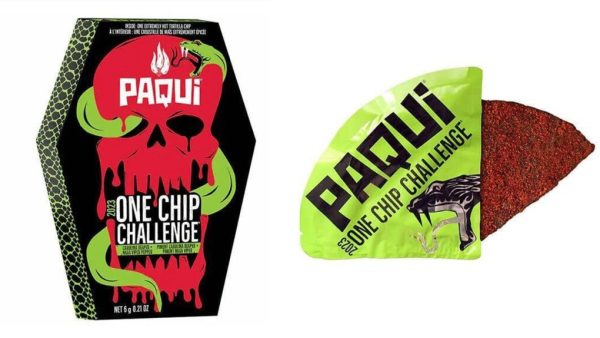
Crumbl Cookies:
Launched in 2017, Crumbl Cookies has been on the rise, opening 850 stores with locations in all 50 States. It now has become one of the most recognized brands with its signature long pink box and rotating weekly menu. This clever “limited-time-only” marketing technique tempts many to try a new cookie every week, but what is really in these tasty treats?
Crumbl’s chocolate chip cookie is available each week, containing a whopping 760 calories per cookie and 20 grams of saturated fat (100% of the recommended daily value for saturated fat). The weekly-rotating menu cookies are similar in nutritional value but some range over 1000 calories and 24 grams of saturated fat.
Crumbl does offer smaller cookies with more reasonable nutritional values but they are only available in catering orders of 50 cookies or more.

Panera’s Charged Lemonade:
After facing lawsuits for the death of two people due to inaccurate labels, Panera Bread’s Charged Lemonade has become an internet sensation.
According to NBC, a 30-ounce charged lemonade contains 390 mg of caffeine and over 1/2 a cup of sugar. Panera’s failed attempt to properly label these drinks caused overconsumption of caffeine. And, although the Mayo Clinic states that 400 mg of caffeine a day is safe for adults to consume, many people were drinking multiple Charged Lemonages a day.
To make matters worse, Panera offered free refills, further increasing the amount of lemonade that people were consuming. Panera Bread has now clearly disclosed the nutritional values of the drinks in all of its stores and on its website.

Paqui One-Chip Challenge:
Created in 2016, the Paqui One-Chip Challenge is as spicy as it is dangerous. This chip is seasoned using two of the hottest peppers in the world, the Carolina Reaper and Naga Viper Peppers, which on average are almost 350 times hotter than a jalapeño. The challenge in itself is for the participant to not drink or eat anything for as long as possible after eating the chip.
Although there is no evidence linking the death of 14-year-old, Harris Wolobah, to the Paqui One-Chip Challenge, many suspect it contributed to the cerebellar stroke he died from a short two days after completing the challenge.
Capsaicin, the compound that causes a burning sensation found in chili peppers, can be harmful to the body if consumed in too high of quantities. Some of the potential effects according to the National Capital of Poison Center are “shortness of breath, allergic reactions, chest pain, heart palpitations, and even heart attacks or strokes.”
In general, while the appeal of these foods and trends may be strong, it’s important to do thorough research and consider the potential risks of what you’re consuming before putting them into your body.









